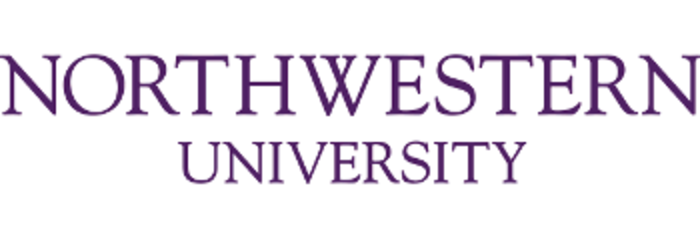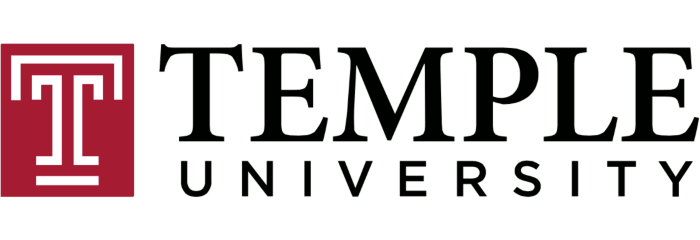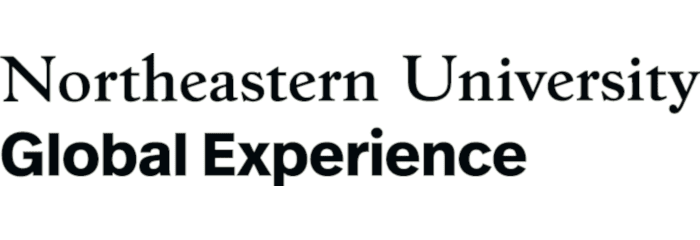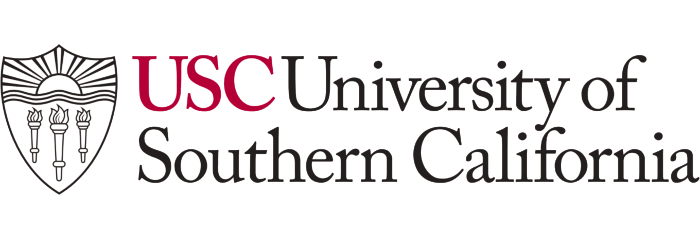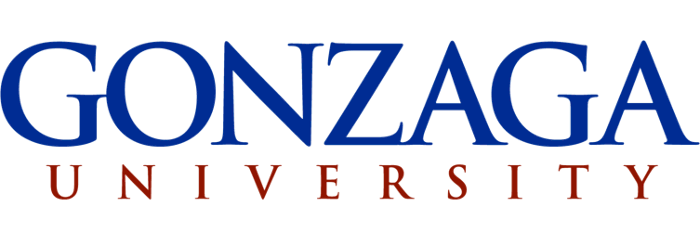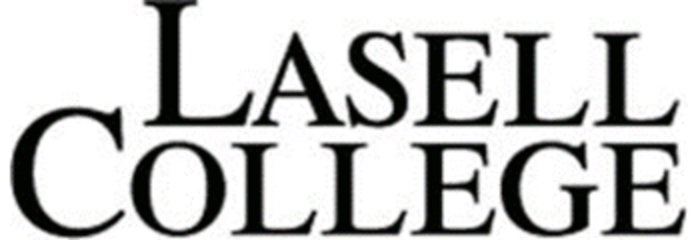2022 Best Online Master's in Communication Programs
ON THIS PAGE
Overview Courses Concentrations Careers Worth ItCommunication is the study of how information is created and shared in interpersonal and organizational domains. Below, we rank the best online master's degrees in communication based on alumni salary for each program. The aim of this graduate degree is to enhance students' communication skills. Expertise in this field is transferable across a variety of platforms and nearly all industries. Perhaps for this reason, the demand for media and communication occupations is projected to increase by 14% through the end of the decade, significantly surpassing the U.S. average.
Learn more about how we make money. ">ADVERTISEMENT
Online Communications Master's Degrees You May Be Interested In

Arizona State University
Annual Tuition: $6,592 - $27,048
3 Programs (view all)

Southern New Hampshire University Online
Annual Tuition: $11,286
2 Programs (view all)
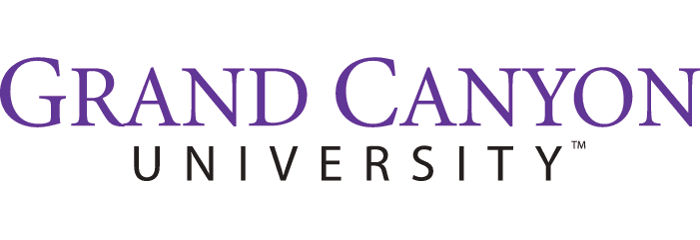
Grand Canyon University
2022 Best Online Master's in Communication Programs
| Rank | School | Salary Score | Median Starting Salary |
|---|---|---|---|
| Northwestern University | $75,297 | ||
| Johns Hopkins University | 94 | $74,230 | |
| Temple University | 90 | $66,594 | |
| Northeastern University Global Network | 88 | $63,842 | |
| University of Southern California | 88 | $63,499 | |
| Purdue University - Main Campus | 88 | $62,884 | |
| Gonzaga University | 86 | $61,001 | |
| Lasell College | 86 | $60,269 | |
| American University | 85 | $59,305 | |
| Washington State University | 83 | $57,410 |
2022 Online Colleges Offering Master's Degrees
Ranking Details
#1 Northwestern University
- Salary Score: 94
- Median Starting Salary: $75,297
- Locations: Evanston (IL)
- Accreditation: HLC
Northwestern University (NWU) is a medium-sized, non-profit institution that offers an online Master of Science in Communication with a Customer Leadership Program or a Hybrid Leadership Program. The curriculum aims to provide students with a broad understanding of workplace leadership and strategic communication. Some core courses for this major include Leading Collaboration, Understanding and Leveraging Network and Communication, Management, and Ethics. Alternatively, the Master of Science in Integrated Marketing Communications requires 13 credits and can be completed in less than two years. Graduates of these programs may go on to explore careers in politics, business, media or marketing.
At NWU, students use Canvas to access their online coursework, which is part-time with the option of hybrid or fully online classes. Students have access to academic advising, enrichment tutorials, and capstone connections.
#2 Johns Hopkins University
- Salary Score: 94
- Median Starting Salary: $74,230
- Locations: Baltimore (MD)
- Accreditation: MSCHE
Johns Hopkins University (JHU) is a private, non-profit institution that offers several educational pathways in communication studies at the master's level. First, a Master of Arts in Communication is available, which includes the option for six concentrations ranging from applied research to digital communication. The coursework combines writing, research, technology, and strategy to prepare students for entering a dynamic industry. There's also a Master of Arts in Government, with the option to specialize in political communication. For the ambitious, two dual master's programs are available in this field as well: (1) Business Administration / Communication and (2) Communication with Certificate in Non-profit Management.
#3 Temple University
- Salary Score: 90
- Median Starting Salary: $66,594
- Locations: Philadelphia (PA)
- Accreditation: MSCHE
Temple University (TU) is a large, public institution that offers an online Master of Science in Communication Management requiring 31 credit hours. The curriculum focuses on effective communication campaigns and workplace conflict resolution. Some core courses for this major include Data Driven Insights, Organizational Communication, and Communication Theory for Professionals. To graduate, students must complete all program requirements, such as four core classes, six electives, and a capstone project, which can take one year with a full-time schedule. Graduates of the program may go on to explore careers in public/government relations, political advocacy, or the corporate/non-profit sectors.
At TU, students use Ed2Go and Gatlin Education Services to access their coursework, which is fully online. Online students have access to digital library services, career center and student success center.
#4 Northeastern University Global Network
- Salary Score: 88
- Median Starting Salary: $63,842
- Locations: Boston (MA)
- Accreditation: NECHE
Northeastern University (NEU) is a medium-sized non-profit that offers an online Master of Science in Corporate and Organizational Communication requiring 45 credit hours. The curriculum aims to teach students about various social technologies and communication patterns in the workplace. Some core classes for this major include Ethical Issues in Organizational Communication and Strategic Communication Management. To graduate, students must complete all program requirements, such as six core classes, two electives, and a 12-week capstone course, which can take 18 months with a full-time schedule. Graduates may go on to explore careers in public and media relations or human resources.
At NEU, students use Canvas to access their coursework, which is fully online. Online students have access to the Experiential Network for digital business sponsorship.
#5 University of Southern California
- Salary Score: 88
- Median Starting Salary: $63,499
- Locations: Los Angeles (CA)
- Accreditation: WSCUC
The University of Southern California (USC) is a large, private non-profit offering an online Master of Communication Management that helps equip students for diverse communication occupations in business. Enrollees can choose a generalist track or select one of three focus areas: (1) marketing communication, (2) strategic and organizational communication, or (3) market research and analytics. Full-time students typically complete this program in 16 months, while part-time students may need up to three years.
USC's program is fully online and does not require any fieldwork or internships. Online students use the Blackboard system to interact with peers and instructors, access course materials, and complete assignments.
#6 Purdue University - Main Campus
- Salary Score: 88
- Median Starting Salary: $62,884
- Locations: West Lafayette (IN)
- Accreditation: HLC
Purdue University is a large, public institution that offers two master's degrees in communication. The Master of Science in Communication is designed to teach students to utilize external branding and messaging strategies in one of four concentration areas: (1) public relations, (2) advertising, (3) healthcare, or (4) leadership. The Master of Science in Corporate Training and Communication focuses on communication within organizations by training students to use strategic communication and technology to enhance employee performance. Both degrees require the completion of 30 credit hours, and most students graduate in 12-20 months. The corporate training program also requires a capstone project or practicum.
At Purdue, students use the Desire 2 Learn platform to access course materials and interact with classmates and instructors.
#7 Gonzaga University
- Salary Score: 86
- Median Starting Salary: $61,001
- Locations: Spokane (WA)
- Accreditation: NWCCU
Gonzaga University is a private, medium-sized non-profit with a Roman Catholic emphasis. This Jesuit institution offers a fully online Master of Arts in Communication & Leadership Studies requiring 30 total credit hours. The program curriculum is designed to help students develop advanced skills in "persuasion and influence," such as effectively communicating change. This is achieved through core classes on audience analysis, message impact, and presentation, to name a few. Graduates of the program may go on to explore careers in a range of industries, including corporate spheres, public relations, marketing, and journalism.
Gonzaga's graduate program in communication gives students access to an online classroom that's available at all times, allowing for maximum flexibility for working professionals and those with other responsibilities.
#8 Lasell College
- Salary Score: 86
- Median Starting Salary: $60,269
- Locations: Newton (MA)
- Accreditation: NECHE
Lasell University (LU) is a small non-profit that offers an online Master of Science in Communication requiring 36 credits. The curriculum covers business challenges and strategic communication, and some potential concentrations for this major include Corporate Communication, Digital Media, and Public Speaking, to name a few. To complete the degree program, students must finish 12 courses, which can take up to two years with a full-time schedule. Alternatively, students may decide to pursue a Master of Science in Integrated Marketing Communication, which is a program that focuses on developing brand experiences. Graduates may go on to explore careers in public relations, social media, or traditional media.
At LU, students use Canvas to access their online coursework, which is fully online with an option for hybrid studying. Online students have access to mental health support services, digital libraries, and online graduate orientation.
#9 American University
- Salary Score: 85
- Median Starting Salary: $59,305
- Locations: Washington D.C.
- Accreditation: MSCHE
American University (AU) is a private non-profit that identifies as United Methodist. Its online Master of Arts in Strategic Communication takes eight more months to complete than the in-person equivalent, allowing students more flexibility. The program generally focuses on optimizing students' messaging and marketing strategies across various types of media. To apply, students do not need a communications background but must have a bachelor's degree from a regionally accredited school.
AU describes their master's degree in strategic communication as the "longest-standing program of its kind in Washington D.C." As such, it features a faculty with real-world expertise in the field. AU's program page also claims that 95% of graduates with this degree are working communication professionals within six months.
#10 Washington State University
- Salary Score: 83
- Median Starting Salary: $57,410
- Locations: Pullman (WA)
- Accreditation: NWCCU
Washington State University (WSU) is a large, public institution offering a Master of Arts in Strategic Communication. The program is focused on building communication skills that can be applied in PR, advertising, sales, and more. Throughout the program, coursework projects are designed to help enrollees create a portfolio of work. Those who want to establish a communications career in the healthcare field may also be interested in the Master of Arts in Health Communication and Promotion. Students must complete 30 credit hours, including a capstone course, to graduate from either program.
Graduate students use the Canvas platform to work collaboratively with classmates and complete assignments. WSU offers a number of student resources, including tech support, tutoring, and career services.
What Is a Master’s in Communication?
As the name suggests, a master’s in communication provides students with the skill they need to communicate effectively. The study of communications also includes the study of various forms of media — including print, digital, and broadcast media. Drawing from fields like sociology, psychology, and even philosophy, communications is a useful degree for students who plan to enter careers in journalism, public relations, marketing, and more.
A master’s in communication typically takes about two years to complete, and students often need a bachelor’s degree in order to qualify. In some cases, students may be required to take an entrance exam, such as the GRE.
MA vs. MS in Communications
An MA and MS in communications are very similar degrees. MA stands for Master of Arts, while MS stands for Master of Science, but both degrees are similar when it comes to admissions requirements, classwork, and courses of study.
In some cases, an MS in Communications may focus more on applied communication in fields like public health or science, while an MA in Communications might place a larger emphasis on the theoretical underpinnings of the study of communication. That said, this difference isn’t true across the board, and in most cases, MA and MS programs in communications have more similarities than differences.
Are Online Master's Credible?
Online master’s degrees are generally seen as credible as long as they are accredited, and in fact, many online degree programs are held in high esteem. With the emphasis on remote learning necessitated by COVID-19, remote programs that grant a master's in communications are more popular than ever.
Especially when it comes to pursuing graduate-level education while also fulfilling work and family responsibilities, online degree programs can be a flexible way to continue to develop skills in a certain field.
Common Courses for a Communication Major
Online communications programs are designed to give students the skills they need to communicate effectively and understand/analyze verbal and written communication. This may include both the practical application of communication studies in fields like journalism or public relations, as well as the theoretical study of communication. Some programs require a capstone project or internship to demonstrate skills learned in a real-world setting.
Below are some common core courses in an online communication master's program:
Research Methods in Communications
This foundational course explores research methods in the field of communications. Students may explore topics including quantitative research methods, qualitative research methods, and rhetorical research methods. Courses may educate students about conducting surveys, experiments, interviews, focus groups, and more.
Media Ethics
A class in media ethics informs students about how to communicate ethically as a member of the media. This can include topics such as properly citing sources, invasion of privacy, the rights of individuals, freedom of speech, and more. Media ethics can apply to a range of fields, such as journalism, broadcast journalism, advertising, entertainment, and more.
Communication with Media Technology
The world of communications is fast-paced and constantly changing, especially when it comes to the latest media technology. Classes on communication with media technology will cover digital technology and concepts including social media platforms, video skills, data visualization, and the latest tools and platforms that facilitate communication. Students may gain real-world skills when it comes to the latest developments in media technology.
Global Communication
Communication norms and standards can vary widely from country to country and culture to culture. Courses in global communication aim to introduce students to topics including the international study of communication, the theory and practice of communication between cultures, business communication between companies in different countries, colonialism, ethical and legal issues in international communication, and more.
Capstone Course
Many graduate-level communications programs require a capstone or thesis project that applies skills learned throughout the program in a real-world context. This may require students to choose a topic of particular interest, then conduct research on that topic. Most capstone or thesis projects need to be approved by an advisor.
Communication Concentrations
Students getting a master's in communications have a few different concentration options to choose from. While these concentrations aren’t available at all institutions that offer a degree in communications, they represent common courses of study that students may be able to pursue.
Public Relations
Students who pursue a concentration in public relations study communication as it concerns companies and brands. Some topics of study may include brand management, crisis management, social media management, marketing strategies, and more. Students may go on to pursue careers as marketers, spokespersons, or PR professionals.
Political Communications
A concentration in political communications prepares students to apply their knowledge of communications to politics. Students may learn to analyze communication from government and elected officials, practice rhetorical strategies, write political speeches, and more. A concentration in political communications could benefit students seeking careers as campaign strategists, speechwriters, and press secretaries.
Digital Media
Digital media encompasses a broad range of topics, from social media to websites to advertising and more. Students who pursue this concentration will learn more about the theory and practice of digital communication and digital media. They may also develop practical skills when it comes to creating and analyzing content for the web. Students may pursue careers as copywriters, website designers, social media managers, and more.
Journalism
Many students who pursue a graduate degree in communications go on to work in the journalism field. While a master's in communications emphasizes a slightly different skills set than a master's in journalism, there’s a lot of overlap between the two categories. Students may study topics including writing and editing, media law and ethics, and research and interview skills.
Advocacy and Activism
A concentration in advocacy and activism exposes students to topics like social justice, protests, and social change. Students may study both the history of communication when it comes to advocacy and activism, as well as current events. They will learn more about analyzing media and popular culture, digital activism, digital inequality, and more.
What Can You Do With a Communication Degree?
Communications is a versatile and rewarding degree that can prepare students for work in a wide range of fields. Many employers look to hire employees who are skilled at written and verbal communication and possess technical skills, such as social media management and SEO.
Journalist
Journalists are responsible for researching and reporting on news and current events. They may work either for legacy media institutions, like print newspapers and magazines, or for up-and-coming digital media companies. They may also pursue careers in radio or television. Demand for journalists is expected to grow at the average U.S. rate over the next decade.
Public Relations Specialist
Public relations specialists are in charge of managing the public perception of individuals and companies. They use their skills in communications to create PR strategies that paint their clients in a positive light. Demand for public relations specialists is expected to grow at a rate of 11% over the next 10 years, which is faster than average.
Technical Writer
Technical writers use their communications skills to explain technical concepts. They may get jobs writing instruction manuals, journal articles, guides, and more. Their job is to make complicated information accessible to a lay audience. Students who have a background in the hard sciences or engineering may be especially well-suited to this career track. Demand for this occupation is expected to grow 12% over the next decade.
Marketing Manager
Marketing managers are in charge of planning and executing marketing campaigns for businesses and organizations. They may specialize in particular marketing fields, such as print marketing, paid advertising, social media marketing, or content marketing and SEO. Marketing managers may have supervisory responsibilities over other employees. Demand for marketing managers is expected to grow 10% over the next decade, which is about average.
Are Master's in Communications Worth It?
A master’s in communications degree will provide you with versatile real-world skills and make you an attractive applicant on the job market. However, graduate degrees in communications can also be expensive and require student loans. You may be able to learn many of these skills on your own. Ultimately, whether or not a communications degree is worth it for you depends on your own particular situation, including your educational background, career goals, budget, and more.
Consider the following pros and cons as you make your decision about whether to pursue a graduate degree in communication:
Potential Advantages
Develop useful, in-demand skills, Employees who can communicate effectively are always in high demand. A graduate degree in communications can help students be more competitive for jobs in fields like marketing, writing, and public relations.
Flexible career paths, Students with a degree in communications are well-suited to a wide variety of career paths. Pretty much any occupation that involves a lot of reading, writing, and analyzing communication could be a good fit for students with this degree.
Creative, engaging field, One of the main draws of a career in the communications field is that it’s a creative, engaging discipline that allows you to put your creative energy to use.
Potential Drawbacks
Lower salary than some other graduate degrees, Communications workers earn an average of $54,000 a year, according to the BLS, which is slightly lower than the median average salary for all fields. While this is a respectable salary for many Americans, students may be able to increase their earning potential with other, more specialized graduate degrees.
Fast-changing industry, Communications is a fast-paced field that is always changing, especially when it comes to applied communications and communication technology. Students may find that some technical communications and marketing knowledge may eventually become outdated.
Many resources available online, While a graduate degree in communications is one way to develop your communication skills, it’s far from the only way. Students can find plenty of resources for free online.
Curious to explore a related degree? Check out the best online master's degrees in marketing.
FAQs About Online Master's in Communication Degrees
Are Online Master's Degrees Easier To Get Into?
How hard it is to get into an online master’s in communications program depends on a variety of factors, including the school and your educational background. Most graduate programs in communications require a bachelor’s degree but don’t require specific coursework or prerequisites.
What Can Communication Majors Get Their Master’s Degree In?
Students with a bachelor’s degree in communications may want to consider getting a master's degree in a related discipline, such as journalism, business, teaching, and more. In general, communications is a versatile major, and as a result, students can pursue graduate studies in a wide variety of different disciplines.
Can a Communication Major Get an MBA?
Yes, communications majors can get an MBA. In some cases, an MBA is a natural step that will allow communications professionals to advance in their careers, especially if they’re interested in pursuing jobs in marketing, business administration, or entrepreneurship.
Why Trust Us?
27 Data Researchers
60,000 Degrees Researched Annually
20,000 Hours Spent on Research Annually
Launching Rankings Since 2009
Related Articles
2023 Best Online Master's Degrees in Speech Pathology
If you want to earn your master's in speech pathology online, explore our 2023 list of the best online programs and read about your best options.
By OnlineU Staff Writers | 2/13/2023

